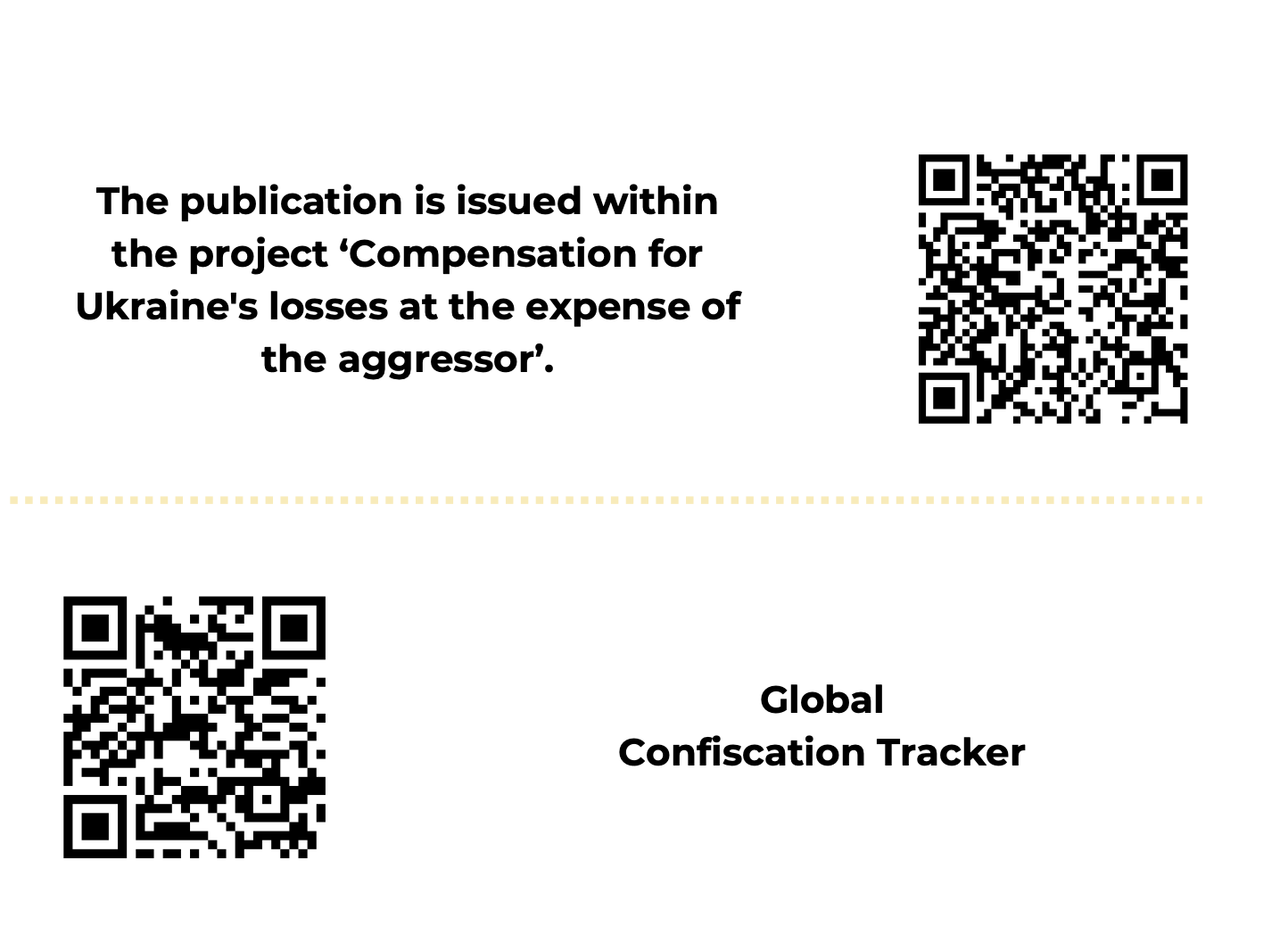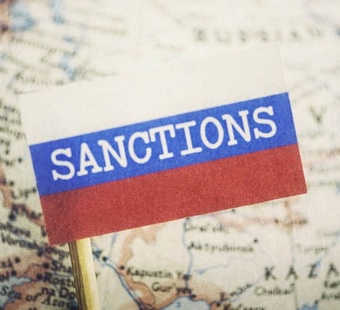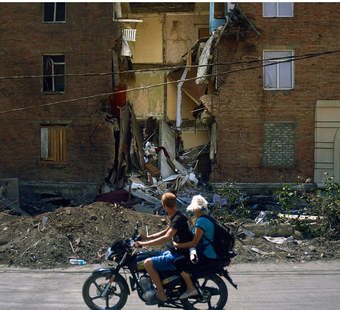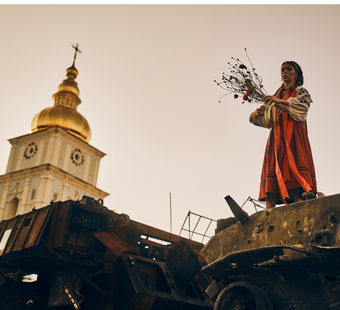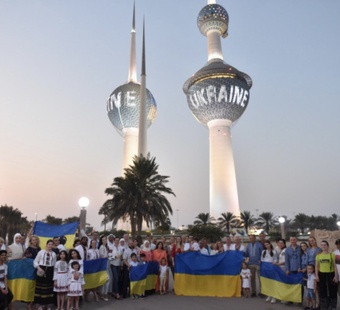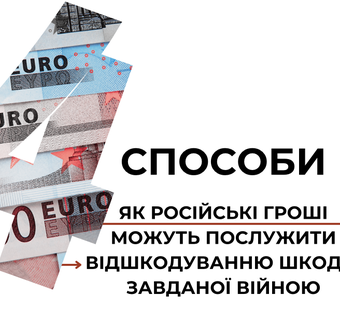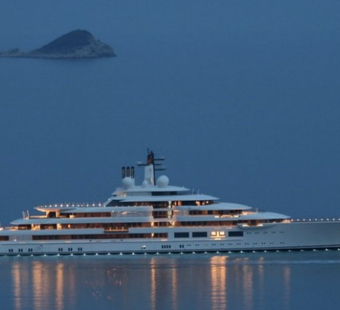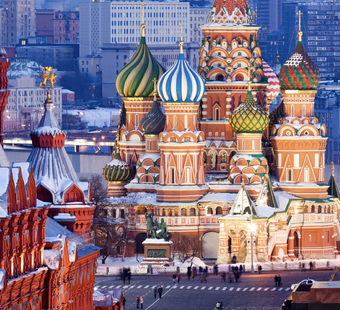>
Analytics>
Using frozen russian assets as a means of compulsory reparations to compensate for the damage caused by russia’s aggressionUsing frozen russian assets as a means of compulsory reparations to compensate for the damage caused by russia’s aggression
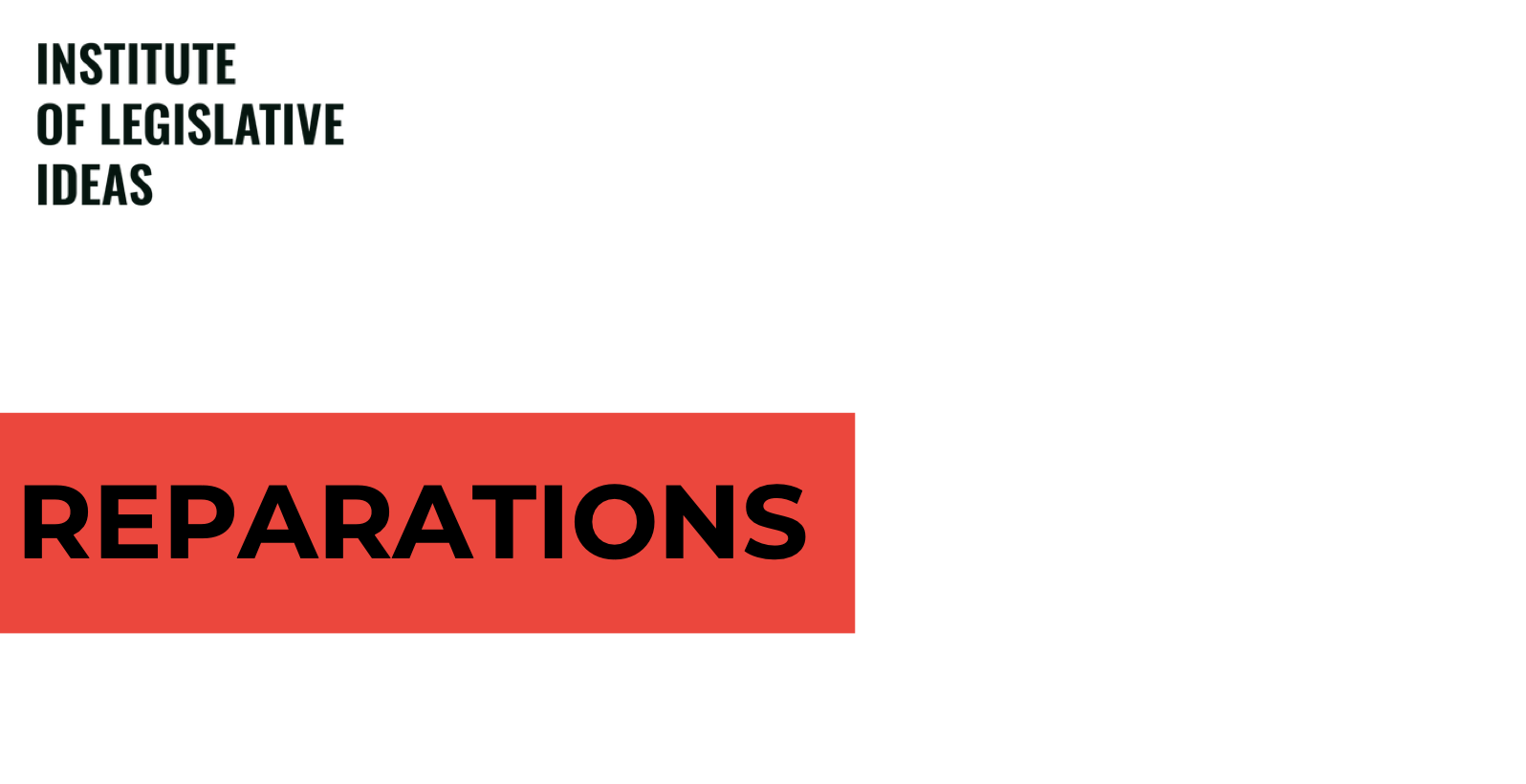
The study substantiates the need to apply ‘interim’ measures aimed at collecting compulsory reparations to compensate for the damage caused by Russia's aggression against Ukraine at the expense of its frozen assets. Russia's sovereign assets, which are immobilized in the accounts of financial institutions, generate income that can bring up to $3 billion a year. Since such revenues are generated due to the war, they, as well as tax revenues from their taxation, should be transferred to Ukraine to facilitate rapid recovery and compensation of damage.
Publisher: the think tank ‘Institute of Legislative Ideas’. All rights reserved.
Authors: Tetiana Khutor, Bohdan Karnaukh, Andriy Klymosyuk, Taras Riabchenko
Context

Summary

During one year of full-scale war (from February 24, 2022 to February 24, 2023), according to World Bank estimates, Ukraine suffered losses of USD 411 billion (more than twice the GDP of Ukraine in 2021, before the war). It is the cost of reconstruction and recovery that the Bank has estimated to be needed to rebuild the country to become a modern, low-carbon, disaster- and climate-resilient country that is in line with European Union policies and standards and addresses the country's vulnerabilities.
However, the war has been going on for more than a year and a half, and Russian aggression continues to destroy Ukrainian infrastructure, devastate industry, and disrupt the financial system. The final amount of losses will be calculated only after the war is over, but experts already predict that this figure could potentially cross the one trillion mark. Human losses, which include tens of thousands of killed and wounded military and civilians, cannot be put into an objective measure.
Western partner countries provide enormous support to Ukraine. Thus, as of 31 July 2023, according to the Kiel Institute for the World Economy, humanitarian, financial and military assistance from European institutions amounted to €84.8 billion, from the United States - €69.5 billion, from Germany - €20.9 billion, and from the United Kingdom - €13.8 billion.
All of these funds are money that democratic countries provide from their own budgets, i.e., at the expense of their taxpayers. Thus, the costs of compensating for the damage caused to Ukraine by Russia are paid for by partner countries and their citizens.
At the same time, Russia remains one of the richest countries, and before the full-scale invasion, its economy was one of the most powerful in the world. Following the imposition of unprecedented sanctions, Russian assets frozen since the beginning of the full-scale invasion are still being held in accounts in Western financial institutions, while continuing to generate income.
The total amount of frozen Russian assets is estimated at more than $300 billion. However, this figure is approximate, as not all European countries have provided information on the amount of frozen assets of the Central Bank of Russia. Public reports and statements indicate that, for example, 7.5 billion euros of Russian sovereign assets have been frozen in Switzerland. At the same time, one of the European securities depositories, Clearstream, registered in Luxembourg, reported that it had frozen Russian assets on its accounts. However, there is currently no information in open sources on the total amount of such assets or their structure.
Euroclear, an international securities depository headquartered in Brussels, provided full and open information on frozen Russian assets on its accounts. Thus, 196.6 billion euros of Russian funds are concentrated in Belgium. Of this amount, 180 billion are the assets of the Russian Central Bank, and the rest belong to Russians under sanctions.
According to Bloomberg, most of the frozen assets on Euroclear accounts are cash and deposits, while a "significant portion" are securities, including bonds and stocks.
These assets may become the financial basis for reparations that Russia must pay for unprovoked aggression.
Section I

Reparations at the expense of frozen assets

The actions of the Russian Federation invading Ukraine have been internationally recognized(1) as an aggressive war that grossly violates international law and contradicts the principles enshrined in the UN Charter.
Such violations oblige the perpetrator to compensate for the damage caused as a result of this violation. Specifically, Article 31 of the Articles on the Responsibility of States for Internationally Wrongful Acts provides that responsible State is under an obligation to make full reparation for the injury caused by the internationally wrongful act. In this case, "injury" includes includes any damage, whether material or moral, caused by the internationally wrongful act of a State.
The UN General Assembly in its Resolution A/RES/ES-11/5 ‘Furtherance of remedy and reparation for aggression against Ukraine’ recognized that:
‘the Russian Federation must be held to account for any violations of international law in or against Ukraine, including its aggression in violation of the Charter of the United Nations, as well as any violations of international humanitarian law and international human rights law, and that it must bear the legal consequences of all of its internationally wrongful acts, including making reparation for the injury, including any damage, caused by such acts’; and recognised ‘also the need for the establishment, in cooperation with Ukraine, of an international mechanism for reparation for damage, loss or injury, and arising from the internationally wrongful acts of the Russian Federation in or against Ukraine’.
In view of the above, and taking into account the fact that it is at least naive to hope for voluntary compensation from Russia, the option of using Russian funds frozen in partner countries as a means of compensating for the damage caused by Russia comes to mind. It should be noted that even if all of these funds were immediately channeled to reconstruction, they would still not be enough to cover even the damage caused during the first year of the war.
Despite the strong support for this idea from the expert community, the political leadership of the partner states is still hesitant to take this step.
For example, U.S. Treasury Secretary Janet Yellen, who has repeatedly expressed support for Ukrainian demands that Russia pay for the damage it has done to Ukraine, nevertheless emphasizes the ‘significant legal obstacles’ that stand in the way of the full confiscation of frozen Russian assets.
This forces us to look for other options - in our opinion, of an interim nature - that will help ensure that frozen Russian money can become part of reparations and serve the purpose of rebuilding and supporting the Ukrainian economy right now.
(1) See: G.A. Res. A/RES/ES-11/1, Aggression Against Ukraine (Mar. 2, 2022); G.A. Res. A/RES/ES-11/5, Furtherance of Remedy and Reparation for Aggression Against Ukraine (Nov. 14, 2022); Allegations of Genocide under the Convention on the Prevention and Punishment of the Crime of Genocide (Ukraine v. Russian Federation) ICJ Order on Provisional Measures (Mar. 16, 2022); The European Court grants urgent interim measures in application concerning Russian military operations on Ukrainian territory.
Section II

Interim measure: use of income from Russian assets and taxation of excess profits

About 200 billion euros of the Russian Central Bank frozen in Euroclear accounts have continued to generate income all this time. In accordance with Euroclear's procedures and EU regulations, the depository must reinvest such income, i.e. reinvest it in instruments that also generate income. In this case, the reinvestment income will no longer be considered Russian income, but will be credited to Euroclear's income.
The world is experiencing a period of high interest rates, which is why yields on Euroclear reinvestments have increased significantly. For example, while in 2022 Euroclear reported €821 million in income from frozen Russian funds, in the first half of 2023 the amount of such income reached €1.74 billion.
Such amounts are considered excessive profits for conservative instruments in which the depository invests. And these excess profits are caused by Russia itself, by attacking Ukraine.
As monetary policy tightening in the West continues, Euroclear's income from reinvestment of Russian assets will continue to grow and reach more than €3 billion by the end of the year. If transferred to Ukraine, these funds could cover about half of the amount that still needs to be raised for the rapid recovery this year (Ukraine is short 6 billion out of the 14 billion needed).
Since Euroclear's excessive profits are due to the war in Ukraine and the sanctions imposed (because, but for the sanctions, the proceeds from Russian assets would have been transferred to Russia without further reinvestment), this leads to the conclusion that Ukraine deserves to receive most of these proceeds. For this reason, the idea of allocating not the Russian funds themselves, but the profits they generate, to rebuild Ukraine is gaining momentum in Europe.
It is some sort of ‘windfall tax’. It is based on the observation that amid the general economic crisis caused by the war, the market capitalization of some companies (primarily in the energy sector) has increased significantly. This means that these companies are making profits due to the situation on the market caused by the war. Imposing an additional tax on such profits is therefore intended to redistribute the economic consequences of the war more evenly.
Ursula von der Leyen emphasised the need for such measures in her annual State of the Union speech in September 2022. ‘Major oil, gas and coal companies are also making huge profits. So they have to pay a fair share – they have to give a crisis contribution’.
In June 2023, at the summit in Brussels, EU leaders agreed to gradually move forward with a plan to tax excess profits from immobilized Russian assets, with the European Commission initially stating that it would come up with a proposal this summer. However, as of early October, the plan has not yet been presented.
U.S. Treasury Secretary Janet Yellen and U.K. Treasury Secretary Jeremy Hunt have expressed support for the European Union's plan to introduce a tax on profits earned from frozen Russian sovereign assets to help finance Ukraine's reconstruction.
‘We have to find a way that doesn’t have unintended consequences,’ Hunt said. ‘And I think the most interesting discussions are really about how to use the interest income generated by (frozen) assets to go toward that reconstruction without actually seizing the assets themselves’.
The first, very cautious steps in this direction have already been taken by Belgium. In May 2023, the Belgian government announced the transfer to Ukraine of EUR 92 million received from tax revenues from Russian financial assets frozen in the accounts of the international depository Euroclear. Meanwhile, the total amount of taxes paid by Euroclear in 2022 amounted to EUR 625 million.
From a legal and political point of view, it is probably the safest option. However, simple arithmetic shows that the amounts received in this way (even if special, increased rates are introduced) are incommensurate with the amount of damage caused by Russia.
In addition, this route will essentially mean that Ukraine's partner states will continue to bear the financial burden of compensation for the damage caused by the war, as they will be giving funds that would otherwise go to their own budgets for compensation. In this way, the principle ‘Russia must pay’ is not implemented.
Section III

Arguments against the use of Russian funds

The President of the European Central Bank, Christine Lagarde, warns(2) that the introduction of such measures against frozen Russian assets could threaten the financial stability and reliability of the Euro.
Essentially, this argument boils down to the fact that many countries keep their national reserves in Euros. And if the proceeds from Russian assets held in Europe are transferred to Ukraine, this will set a precedent forcing investor countries to reassess the reliability of the Euro and change the ‘place of registration’ of their national reserves. As a result, the outflow of funds will weaken the Euro's position in the global financial market.
Similar arguments about the possible weakening of the US dollar are being voiced across the Atlantic.
The threat of retaliation from Russia is also an additional concern.
However, experts emphasize that the risks are overestimated. In short, the ‘Rubicon has already been crossed’ when financial institutions froze Russian sovereign assets. And further measures against such assets will not create an effect greater than that already present in financial markets. Increased political risks are already included in asset allocation services by financial institutions around the world, - former U.S. Treasury Secretary Lawrence H. Summers, former U.S. diplomat Philip Zelikow and former World Bank President Robert B. Zoellick note in their publication.
The authors also point out that Russia, planning a full-scale invasion, had already reassessed the political risks associated with dollar deposits and tried to diversify its portfolio by investing in gold and other currencies, but this did not have a significant impact on the dollar's position in the world.
In addition, in order to break with the two major world currencies, one must have comparable alternatives. And there are none. The Chinese Yuan is a candidate for this role, but keeping reserves in the currency of a country where the rule of law is not respected is likely to carry political risks that are even greater than those associated with the current situation.
The more consolidated the efforts of the sanctions coalition to take appropriate measures against Russian funds, the fewer comparable alternatives will be available. In other words, the more countries agree to use the proceeds of Russian assets to compensate for the damage caused by the war, the fewer alternatives will be left for countries that try to move their reserves into other currencies.
That is why, both on the European continent and overseas, the leitmotif in discussions about the use of Russian funds is the idea of consolidating efforts in this direction and the need to enlist the support of all G7 countries.
In addition to the geo-economic concerns mentioned above, some legal objections are also asserted. The latter are based on the premise that the profits from Russian assets belong to the owner of these assets, i.e. Russia (Euroclear obviously believes otherwise and in its Report claims the right to the income from reinvestment of Russian funds). This leads to the conclusion that all the objections raised against the direct confiscation of Russian assets are also valid with respect to the income earned from these assets.
A detailed justification of the untenability of any claims that international law does not allow for the confiscation of Russian assets is provided in a two hundred page report issued in September of this year by the Renew Democracy Initiative. The epigraph to this report could be the words of former U.S. Treasury Secretary Larry Summers: ‘Bank robbers should not expect banks to honor their safe deposit boxes’.
The Report explains that the transfer of frozen Russian assets to Ukraine is permissible under the doctrine of ‘third-party countermeasures’(3). This doctrine permits actions that would otherwise violate international law, provided that such actions are taken to induce another state to restore compliance with international law.
The transfer of Russian sovereign assets should be considered a legitimate countermeasure for several reasons.
- First, Russia is grossly and blatantly violating international law, which is beyond any doubt.
- Secondly, this measure is proportionate, not arbitrary, and even much more targeted than the sanctions that have been imposed so far.
- Third, it satisfies the requirement of reversibility: the transfer operates as a temporary and limited suspension of normal legal relations between Russia and other countries.
With regard to the doctrine of sovereign immunity (which is also often cited as an obstacle to the confiscation of Russian assets), the report emphasizes that sovereign immunity is a doctrine designed to protect a state from being brought before the national courts of a foreign state, and therefore this doctrine cannot be used to restrict foreign policy, which is implemented by the legislative and executive branches of government rather than the judiciary.
Sovereign immunity is a doctrine that shields sovereign entities from liability in court, not a restriction on the sovereign's foreign policy implemented through executive or legislative actions.
Therefore, the authors of the Report conclude that the transfer of Russian sovereign assets for the purposes of compensation for damage is not only consistent with international law, but also constitutes an obligation of the civilized world. Failure to take such measures is tantamount to a policy of appeasement of the aggressor.
It is hard to disagree with this position.
(2) It is the position of the European Central Bank that is currently the biggest obstacle to the implementation of the decision to use the proceeds of the frozen Russian assets.
Conclusions


Damage must be compensated by the one who caused it. And since we cannot count on Russia's voluntary reparations and compensation for the damage caused by the aggressive war, the only way to ensure the workability of international law is to repurpose Russian funds deposited in the financial institutions of partner countries.
World leaders have repeatedly emphasized that Russian assets will be frozen until Russia compensates for the damage. This narrative apparently harbors the hope that voluntary compensation may someday occur. But is it wise for the international community to remain idle, satisfied with this narrative, when there is no reason to expect voluntary reparations (and especially given how blatantly Russia has been ignoring the orders of the ECtHR and the International Court of Justice to immediately end the war for more than a year)?
International law allows for the direct seizure of Russian assets as a legitimate countermeasure, and even more so allows for the seizure of the proceeds of such assets' reinvestment. The only obstacle is the lack of political will and the need to overcome the barrier of political hesitation. This barrier may be overcome by an interim measure in the form of windfall profits taxation. And if so, it has the right to exist and deserves support, not as an alternative to full compensation, but as a first step before the main (financial) counterstrike.
